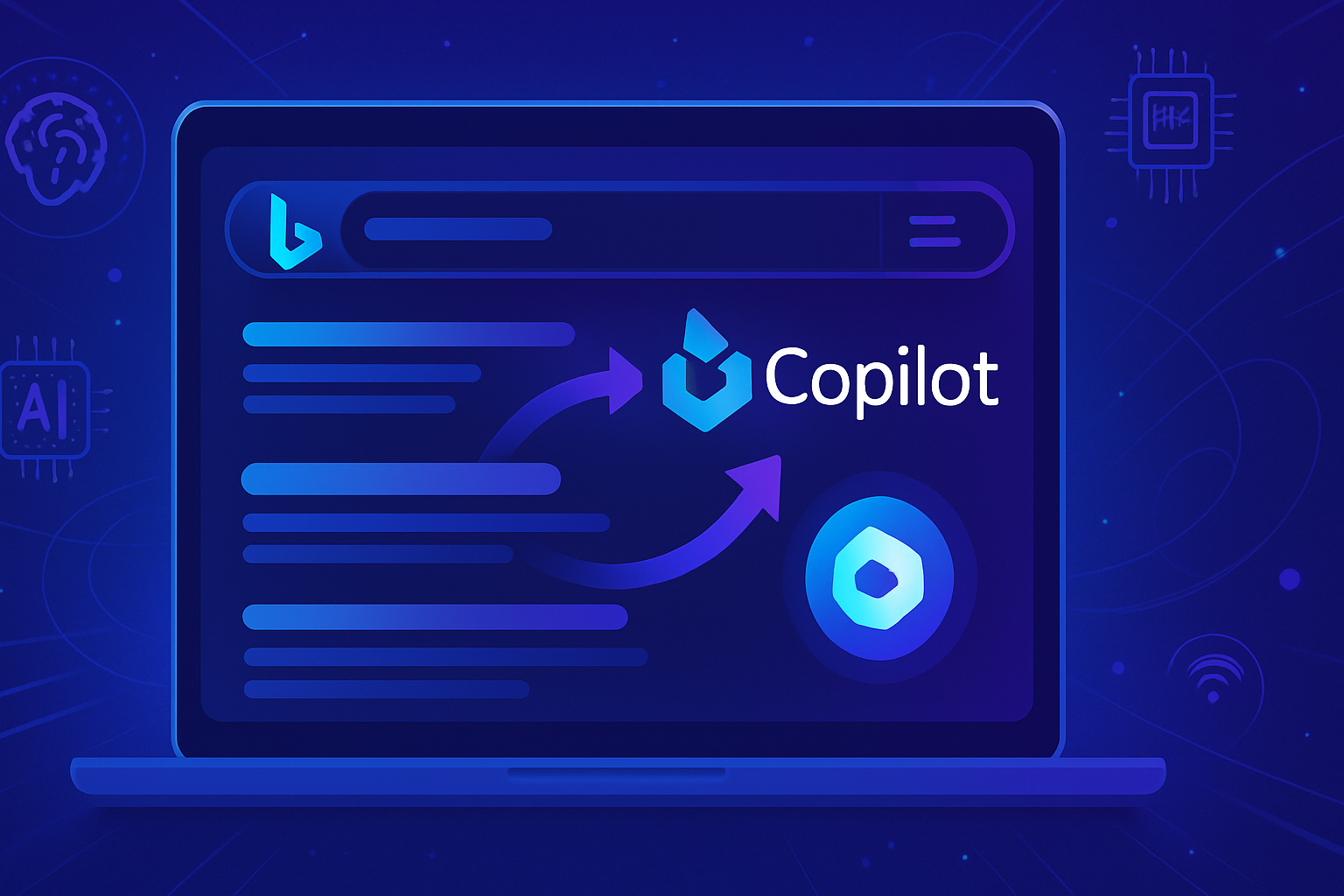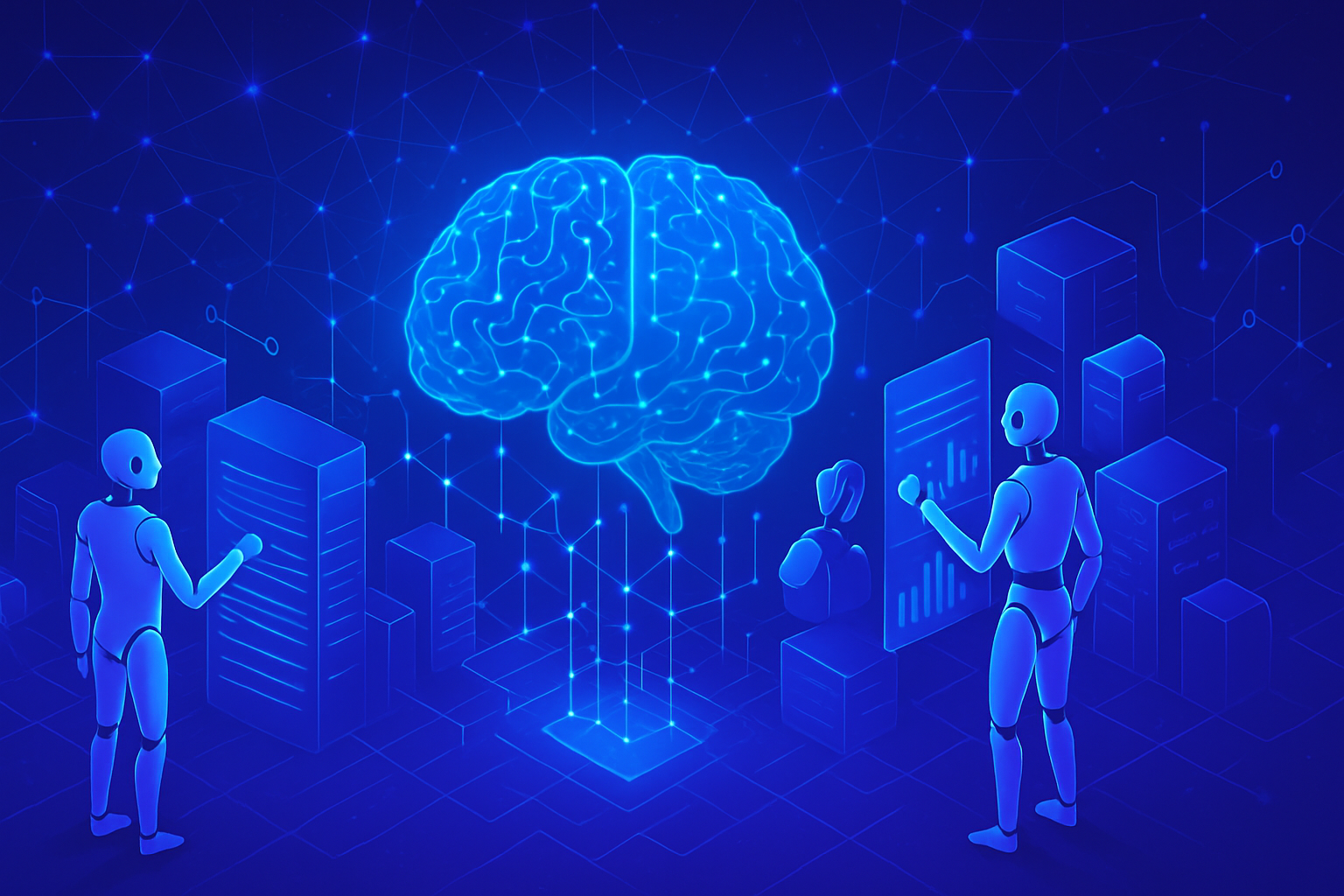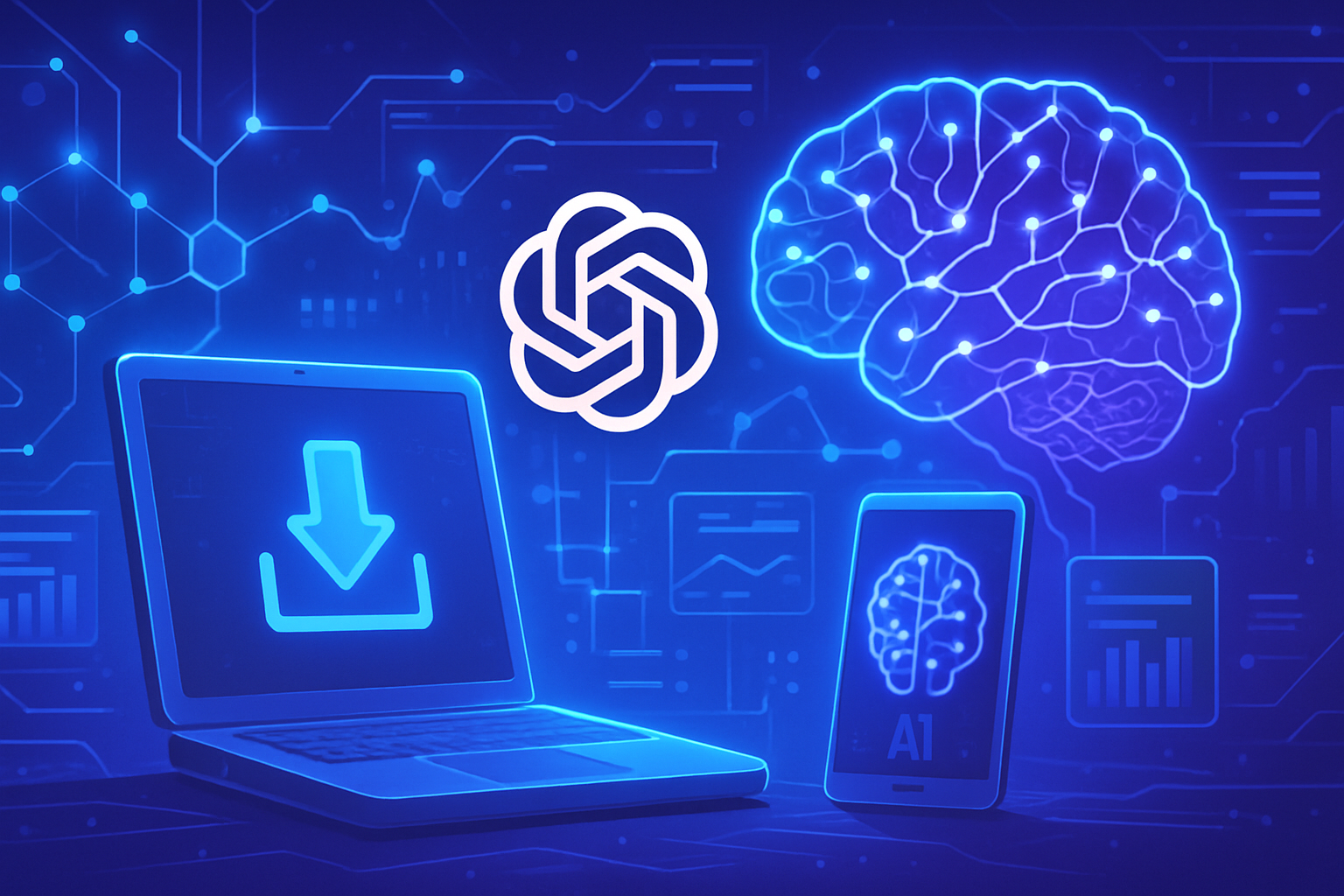The global digital landscape is evolving at an astonishing speed, pushing each player to rethink their strategy in the face of artificial intelligence. The issue of digital sovereignty has become an absolutely inevitable necessity, pivoting between the risks of a total migration to dependent infrastructures and the paralyzing immobility of a Europe in search of technological legitimacy. The dominance of *American hyperscalers* in the Cloud exacerbates this issue, thus compromising local innovation and the protection of sensitive data.
The transition to a sovereign and secure digital ecosystem requires bold thinking on new models, favoring a gradual adoption. Europe’s digital future is not limited to a binary choice. Solutions must emerge, pragmatically realized and tailored to local specificities.
Cloud Transformation through Artificial Intelligence
The emergence of generative artificial intelligence has radically changed current digital dynamics. Its operation relies on a Cloud infrastructure, which, to date, remains dominated by the GAFAM. This situation raises major challenges regarding digital sovereignty.
The Cloud is no longer just a storage space. It now represents an extension of human cognitive capabilities serving economic systems. Artificial intelligences, far from being mere passive software, are shaped, trained, and executed within this digital environment, requiring increased scalability and security.
The Growing Demands of AI
The new uses of AI impose unprecedented standards of privacy and traceability. For example, private inference requires that models be executed on sensitive data without exposing it. This implies the use of advanced cryptographic mechanisms and secure execution environments. This upheaval requires not only technical mastery but also a political paradigm shift: the Cloud must become a true space of trust.
European Dependency and Immobility
Europe suffers from a structural dependence on American hyperscalers, thus escaping its laws and strategic interests. As digital giants lock down the market with binding contracts, Europe lags behind in developing scalable alternative solutions. This situation reflects a costly inertia, especially in the areas of health, defense, and industry.
Most AI models developed in Europe rely on non-European infrastructures. This situation exposes critical data to entities that do not meet European standards, thus compromising the competitiveness of local businesses and the mastery of intangible assets. Moving AI models from one platform to another proves to be a deterrent process, created by systems designed to capture data and maintain dependence.
Towards Continuous Digital Sovereignty
European dependence on the Cloud should not be viewed as an unavoidable destiny. The transition to a sovereign AI Cloud must occur gradually, addressing contemporary challenges. Such a shift requires starting with new use cases, allowing for native design in a trusted environment.
It is feasible to deploy this approach without an absolute constraint of migrating all existing systems. Each project can be designed with standards of security, compliance, and transparency, promoting gradual transformation. By adopting this strategy, it becomes possible to establish a technical and cultural foundation conducive to digital sovereignty.
Necessary Paradigm Shift
Adopting a new perception of sovereignty as a lever of differentiation and commitment is imperative for businesses. The perception of sovereignty as a burden limits its adoption and beneficial effect. Companies must see their AI infrastructure as a strategic choice, strengthening their technological independence and regulatory compliance.
This mindset change must be accompanied by a collective effort to reject any dependence on external entities. The strategic decisions made today will determine not only innovation capabilities but also control over Artificial Intelligence in the coming years. The future of European sovereignty relies on determined and coordinated actions in the long term.
Challenges intensify as AI becomes a strategic asset across all sectors. Reflection on this theme is essential to navigate towards a digital future that is both prosperous and autonomous.
Frequently Asked Questions
What is digital sovereignty in the context of AI?
Digital sovereignty refers to a country or region’s ability to control its own digital infrastructures and data, particularly in light of the growing use of artificial intelligence (AI). This includes the management of sensitive data and the protection of local interests against dependence on American tech giants.
Why is it important to develop sovereign alternatives to AI?
Developing sovereign alternatives to AI is crucial to ensure data security, the competitiveness of European companies, and to maintain strategic control over intangible assets, thereby reducing dependence on Cloud giants.
What are the risks associated with dependence on the Cloud of American hyperscalers for AI systems?
Dependence on the Cloud of American hyperscalers exposes European companies to risks related to data privacy, legal compliance, and loss of control over technologies that become strategic assets. This also hinders innovation capabilities.
How can we begin the transition to a sovereign AI Cloud without migrating all existing systems?
The transition can begin by implementing new use cases, project by project, allowing the use of controlled infrastructures for specific applications while adhering to security and compliance standards.
What security standards should be applied in a sovereign Cloud for AI?
Security standards include clear governance on data access, the application of cryptographic mechanisms for private inference, and the use of protected execution environments to ensure that data remains confidential.
What are the benefits of a progressive approach versus a total migration to the sovereign Cloud?
A progressive approach minimizes risks, avoids high integration costs, and establishes a technical and cultural foundation conducive to sovereignty while building trust in new infrastructures.
How can digital sovereignty become a differentiating factor for companies?
Digital sovereignty can serve as a differentiator by ensuring responsible data management, heightened regulatory compliance, and demonstrating a clear commitment to information security and ethical responsibility in the use of AI.
What types of mechanisms can help strengthen trust in Cloud infrastructures for AI?
Mechanisms such as transparency regarding data usage, the implementation of compliance certificates, frequent audits, and guarantees on data security can strengthen user trust in Cloud infrastructures for AI.
What is private inference in the context of AI and sovereign Cloud?
Private inference is a process that allows predictions to be made with AI models without exposing the underlying data. This requires advanced technologies to ensure that the data is not accessible to the model or service provider, thereby enhancing confidentiality.
What future for digital sovereignty in Europe in light of advances in AI?
If efforts to develop sovereign alternatives continue, Europe can aspire to better control its digital infrastructures, promote local innovation, and establish a strong position against the challenges posed by tech giants.






